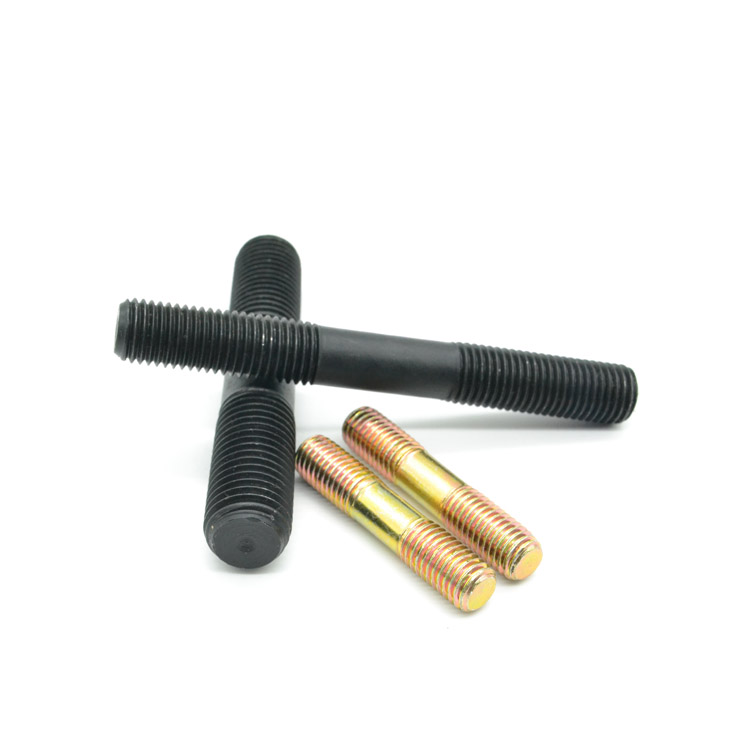High-Performance Connecting Rod Bolts for Enhanced Engine Durability and Reliability in Automotive Applications
Aug . 12, 2024 13:00 Back to list
High-Performance Connecting Rod Bolts for Enhanced Engine Durability and Reliability in Automotive Applications
High-Quality Connecting Rod Bolts Essential for Engine Performance
When it comes to automotive engineering, every component plays a critical role in the performance and reliability of the engine. Among these components, connecting rod bolts are often overlooked, yet they are instrumental in ensuring the longevity and efficiency of an engine. The importance of high-quality connecting rod bolts cannot be overstated, as they are responsible for securing the connecting rods to the crankshaft, enabling proper power transfer and minimizing vibrations during engine operation.
The Role of Connecting Rod Bolts
Connecting rods are pivotal in the engine's operation, as they connect the piston to the crankshaft. This connection converts the linear motion of the piston into rotational motion, which ultimately powers the vehicle. The connecting rod bolts serve a crucial function by holding the connecting rods firmly in place, ensuring that they can withstand the immense forces generated during combustion cycles.
Why Quality Matters
The operational environment of an engine is demanding; it experiences extreme temperatures, pressures, and vibrations. Thus, the materials and manufacturing processes used for connecting rod bolts must meet stringent standards to ensure performance and reliability. High-quality connecting rod bolts are typically made from premium-grade materials such as high-strength steel, which can endure the stresses without undergoing fatigue or failure.
Subpar bolts, on the other hand, may lead to catastrophic engine failure. A bolt that breaks can result in severe engine damage, leading to costly repairs and extended downtime for the vehicle. This highlights the importance of investing in high-quality components that can ensure the engine runs smoothly and efficiently.
Key Features of High-Quality Connecting Rod Bolts
high quality connecting rod bolts

1. Material Strength High-quality bolts are often manufactured from advanced materials, such as alloy steels or titanium, which offer superior tensile strength and resistance to wear.
2. Precision Engineering The manufacturing process for connecting rod bolts is critical. High-quality bolts are produced using precision machining techniques to ensure accurate dimensions and fit, minimizing the risk of failure.
3. Surface Treatment Many high-quality bolts undergo surface treatments, such as coating or hardening, to enhance corrosion resistance and fatigue life. This treatment also helps in reducing friction during operation, which is vital during the high-speed rotation of the engine components.
4. Tensile and Yield Strength It is essential to select bolts that meet or exceed the required tensile and yield strength. This ensures that the bolts can handle the extreme forces and pressures experienced during engine operation without yielding or breaking.
The Impact of Quality on Performance
Choosing high-quality connecting rod bolts not only enhances the reliability of the engine but also contributes to better overall performance. Engines equipped with superior bolts often demonstrate improved power delivery, efficiency, and torque output. Additionally, high-quality bolts help reduce the likelihood of vibrations and noise, leading to a quieter and more enjoyable driving experience.
Conclusion
In the realm of automotive performance, connecting rod bolts may seem like small components, but their role is anything but minor. High-quality bolts are essential for ensuring that the engine operates reliably and efficiently under varying conditions. When building or maintaining an engine, it is crucial to opt for high-quality connecting rod bolts to prevent potential issues down the line. Ultimately, investing in quality ensures a stronger, more dependable engine that performs at its best, providing peace of mind for the driver.
Latest news
-
Top Wire Bolts Suppliers - Quality & Durable Fasteners
NewsAug.15,2025
-
Trusted Wire Bolts Company | Quality Fasteners Supplier
NewsAug.14,2025
-
Reliable Wire Bolts Suppliers & Manufacturers for Global Needs
NewsAug.13,2025
-
High-Quality Bolts for Lawn Mower Handle Supplier
NewsAug.12,2025
-
Leading Phosphated Drywall Screws Supplier | Bulk & Custom Orders
NewsAug.11,2025
-
Top Wire Bolts Company: Manufacturers, Exporters & Suppliers
NewsAug.10,2025
